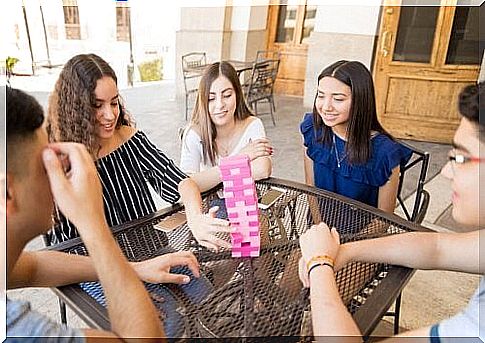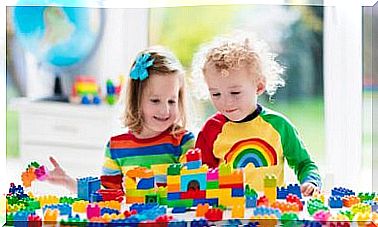Why Are Teenagers More Influenceable?

Why are teenagers more influenceable? Adolescence is the phase in which we begin to shape our identity, which is what defines and differentiates us at the same time.
However, generally, what a teenager is looking for is not a difference. The fear of being different leads to emotional insecurity, which makes adolescents vulnerable to social influences.
Adolescents seek to fit into the social environment around them, feel part of society or their peer group (which has acquired great relevance for them).
Until then, for the young man, his parents were the reference figure and the model to be followed. However, with the arrival of adolescence, the peer group acquires the role of reference along with the parents.
When we say that teenagers are more influenceable, we are also referring to the positive side. For example, a teenager might choose a college career because he had a good teacher in a particular subject. Or, for example, joining a football team because of friends.
What does social influence consist of? Why are teenagers more influenceable?
Psychologists PG Zimbardo and Michael Leippe understand social influence as a process. A process by which one person’s behavior changes the way another person behaves, feels, or thinks about a particular stimulus.
Therefore, we could say that social influence includes thoughts, feelings and behaviors. From the point of view of social psychology, there are two types of social influence:
- Informative. Adolescents can be affected by this type of influence in different contexts. For example, when they observe others to gain information about the environment or when they feel uncertain about a situation.
- Normative. While it has always been said that adolescence is the time of rebellion, the survival instinct is stronger. Therefore, young people instinctively adapt to the environment and, in order to fit into society, they need to accept its norms.

Asch’s Social Conformity
Salomon Asch was the first to study social conformity. In his “Which line was like the other” experiment, he demonstrated that subjects changed their responses according to whether they were in a group or alone. For the experiment, an individual was chosen to answer questions alone or in groups (formed by actors).
The results demonstrated how group opinion influences the individual. The group pressures him until he gets to the point of exchanging his opinion for the group’s, even if it’s wrong.
Social conformity is a type of normative influence. Thanks to this theory, it is possible to explain why a teenager behaves differently depending on whether he is at home, in class or with friends.
Adolescents, despite having an opinion, change it as a result of pressure exerted by others on them. In this way, the teenager behaves differently than he would if he were alone.
The reasons that lead to social conformity are very varied. For example, the fact that the teenager does not have objective criteria and resort to comparisons with friends, accepting their criteria. Or, to avoid social ridicule for the fear of being alone.
Help your kids deal with social pressure
When a teenager feels pressured by his peer group, he may end up doing something he really didn’t want to do. Adolescents change their values because they want to feel accepted and valued by their friends. Thus, he adapts to feel that he is part of a group.
For all these reasons, it is important for parents to know how to help their children deal with social pressure:
- Learn to say “no” . If your child can’t find a suitable way to say they don’t want to do something, then teach them some ways to say “no” that are helpful to them. For example, if he is encouraged to smoke: “No, I don’t like the taste” or “No, I don’t like the smell” .
- Expand the social network. Help your child develop friendships in other social circles. By having different friends, he will also have more options and sources of support if a friendship group doesn’t work.
- Be yourself. Often, being yourself helps keep social pressure under control. So, if your child is not happy with himself and your way of thinking, let him see that the best way to be happy is to be himself.
- Strengthened self-esteem. Increasing your child’s self-esteem makes them better able to resist social pressure from peer group or the media.

In short
Adolescents not only change their behavior to adapt to the environment. At the same time, social influences are shaping your identity. It is normal for teenagers to be more vulnerable to the environment. Especially now that social media has an important influence on younger people.
Teenagers are more influenced by social pressures because, at the same time they are discovering themselves, they are trying to fit in with the world. For all these reasons, it is essential that teenagers strike a balance between being themselves and adapting to their environment.









